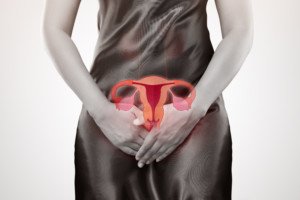
If you suffer from heavy menstruation, there is a treatment that has an exceedingly high success rate that’s safe and doesn’t involve uterine removal.
Your heavy periods can be successfully treated without a hysterectomy.
Traditionally, heavy periods have been treated with a hysterectomy — when hormone treatments and oral contraceptives have failed.
Nevertheless, in 2005, over 250,000 hysterectomies were performed in the U.S. as a treatment for heavy periods.
Do NOT rush to get a hysterectomy in the name of “just get it out and let’s be done with it.”
This is an invasive procedure; its invasiveness and recovery time are out of proportion for just the treatment of heavy flow.
Every year, hundreds of women die from complications linked to hysterectomies.
A woman who suffers from extra heavy periods that interfere with quality of life may hear from her doctor that she should consider a hysterectomy.
However, there is yet another alternative that a woman should check out.
“Heavy menstrual bleeding is very common in the perimenopausal period,” says Betsy Greenleaf, DO, a board certified urogynecologist and owner of Greenleaf Health & Wellness, a medical center dedicated to mind-body-spirit wellness.
“These changes in bleeding are due to fluctuations in hormone levels during this time.
“However, anyone can develop heavy menstrual bleeding. One in 20 women have this problem.”
Dr. Greenleaf notes the following causes of a heavy period:
- Hormonal imbalances
- Uterine growths, polyps, neoplasias and cancer
- Medical conditions such as an inherited bleeding disorder, liver disease and kidney disease
- Medications such as blood thinners
Treatment options, once a medical workup reveals no worrisome conditions, include the following:
- Observation and wait for menopause
- Hormones
- Medications
- NSAIDS
- Lysteda ( tranexamic acid)
- IUD
- Endometrial ablation
- D&C
- Hysterectomy
In 2001, the FDA approved a highly effective and safe treatment modality, and even though this was way back then, many women who suffer from heavy periods don’t even know about it, and even some physicians may not be very aware of it.
It is the NovaSure Impedance Controlled Endometrial Ablation System.
“Endometrial ablation is a procedure that uses heat to cauterize the lining of the uterus,” says Dr. Greenleaf.
“These procedures have been around since the late 19th century.
“NovaSure is an endometrial ablation that has stood the test of time.
“It is typically performed by placing a device within the uterus while the patient is asleep in an operating room.
“The procedure uses soundwaves to generate heat. The process take less than 10 minutes.” The effects are permanent.
“Afterwards most patients experience minimal cramping and go home the same day.
“Internal sexual activity has to be avoided for a few weeks afterwards while the uterus is healing.
“Patients may experience some bleeding during the healing period that typically only lasts two weeks but can last up to six weeks — but the bleeding is typically much lighter than a period.
“NovaSure has up to a 94% success rate, meaning that patients either get a reduction in the amount of bleeding or stop getting their period altogether.”
The American College of Obstetricians and Gynecologists recommends this endometrial ablation system.
How well do women fare five years after receiving the NovaSure treatment? The Journal of Reproductive Medicine (2007) published a report:
After five years, 75 percent of treated women experienced cessation of their periods, while a whopping 97 percent experienced reduced bleeding from their periods — enough reduction that a hysterectomy wasn’t even considered an option at that point.
Is NovaSure not for any woman?
“This procedure is not intended for anyone who wants to get pregnant in the future, and at the same time, it is not intended as a form of birth control,” says Dr. Greenleaf.
“Pregnancy can still occur after this procedure.”
Why You Should Not Ignore New-Onset Heavy Periods
What seems like a heavily flowing period for the first time, despite a history otherwise, needs to be evaluated by an OBGYN.
This is because the extra blood can be caused by uterine cancer, even in a premenopausal woman.
So don’t just blow it off as an inconvenience that can be remedied by more frequent pad replacement.
Uterine cancer is highly curable when caught early.
Here is more information on NovaSure.

 Dr. Greenleaf is board certified in obstetrics/gynecology, female pelvic medicine and reconstructive surgery, and procedural medicine and aesthetics. She is host of
Dr. Greenleaf is board certified in obstetrics/gynecology, female pelvic medicine and reconstructive surgery, and procedural medicine and aesthetics. She is host of 







































